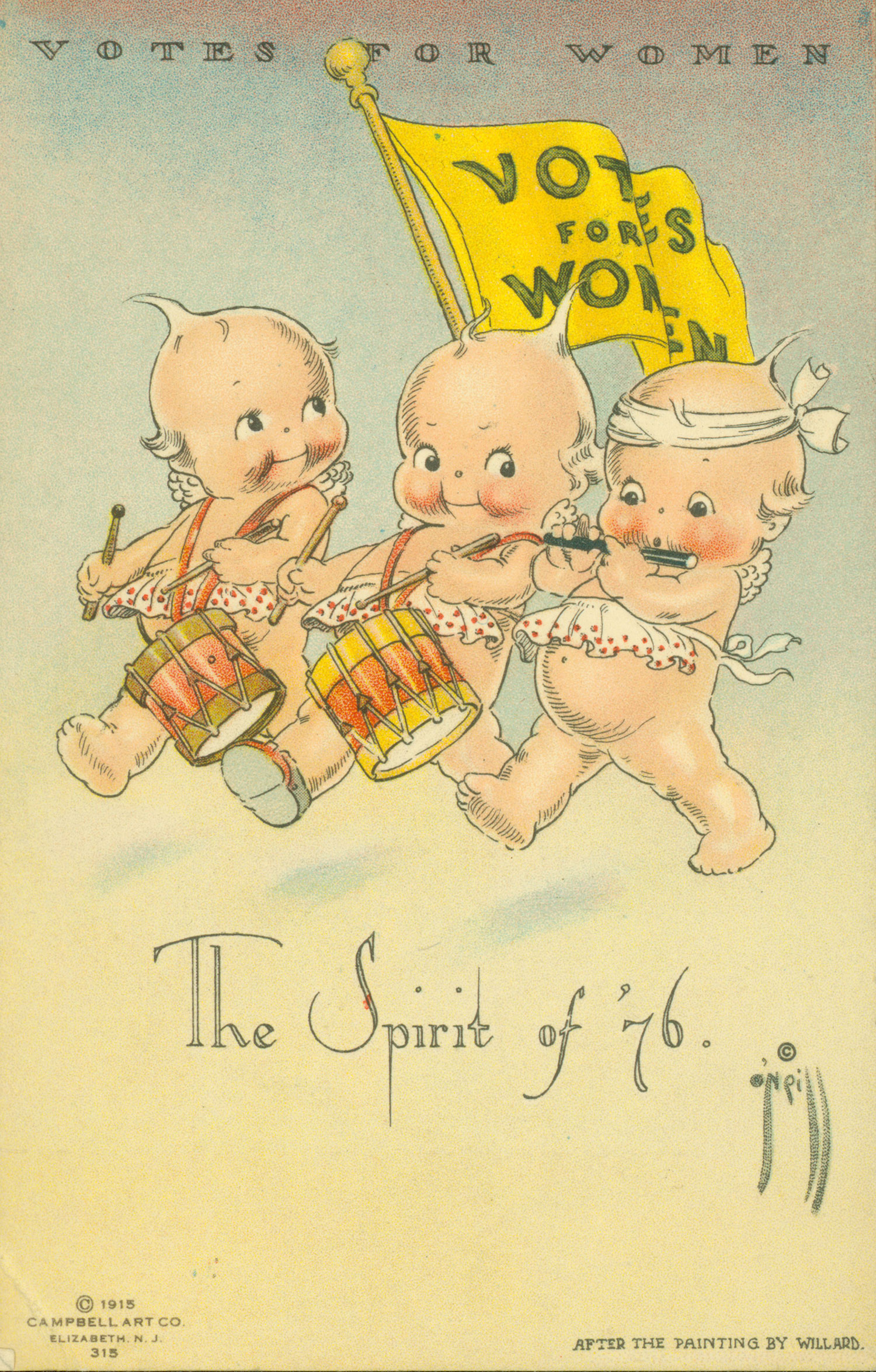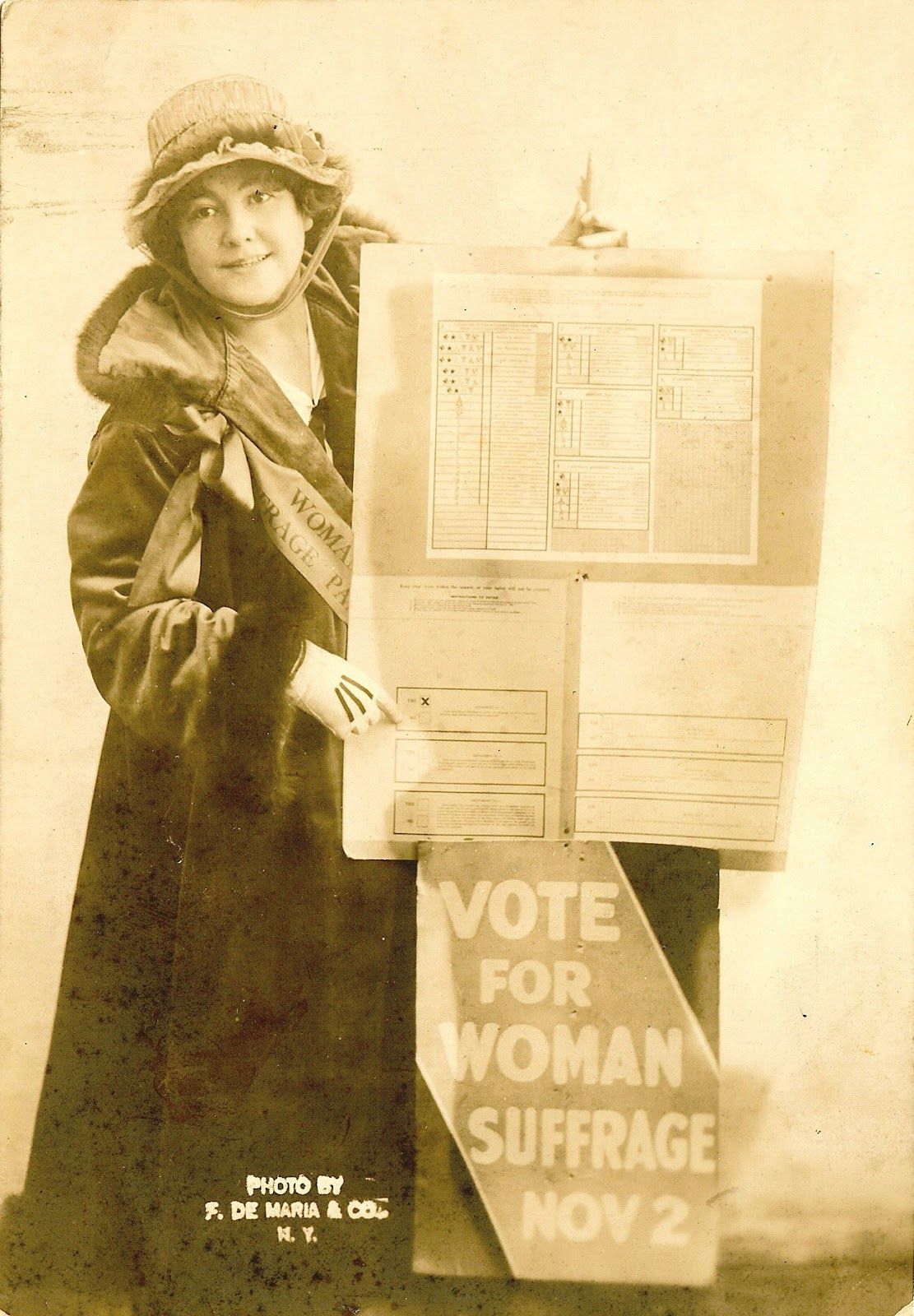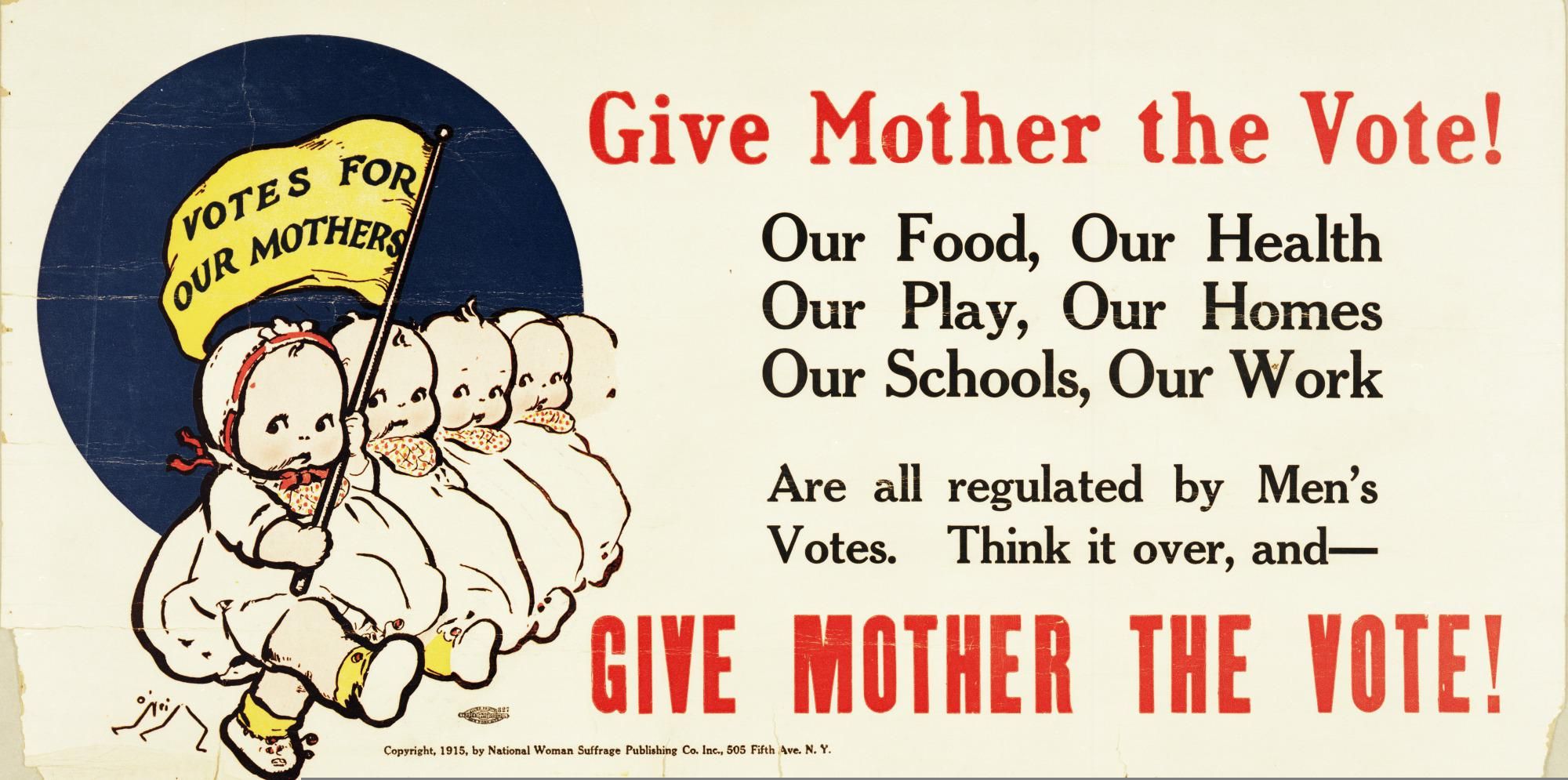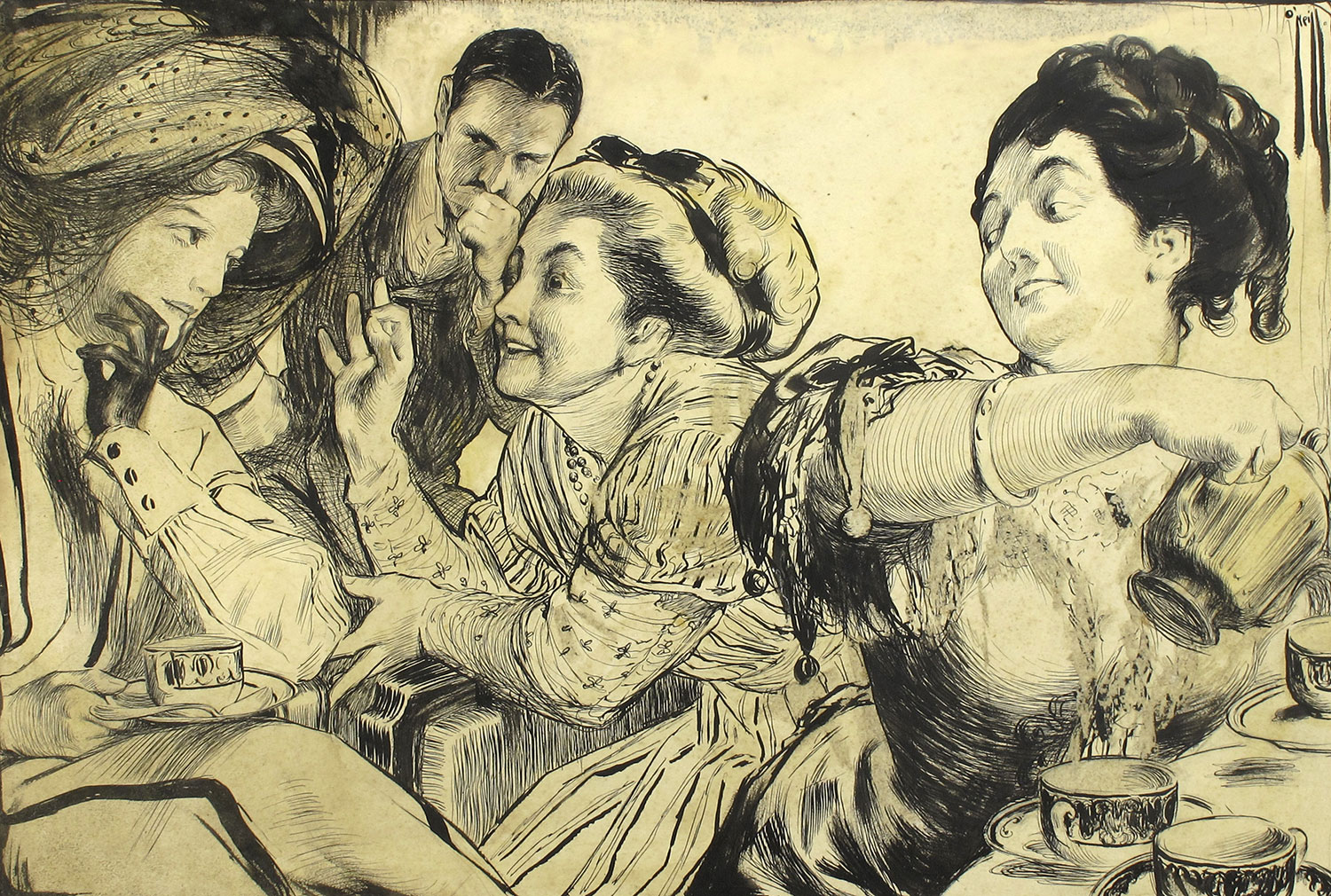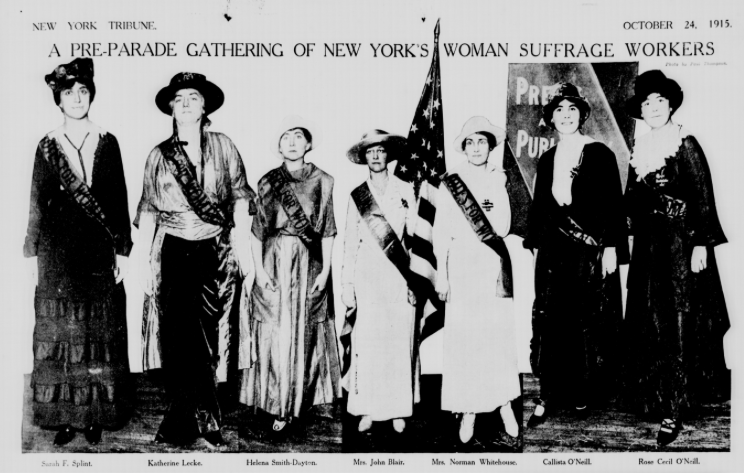NORMAN ROCKWELL MUSEUM PRESENTS
ROSE O’NEILL: ARTIST AND SUFFRAGETTE
Special exhibition celebrates the 2020 Women’s Vote Centennial, on view through September 27
 STOCKBRIDGE, MA—Rose O’Neill: Artist & Suffragette is a special installation created with recently acquired artwork, generously donated by The Rose O’Neill Foundation to Norman Rockwell Museum’s permanent collection of illustration art. This exhibition is especially meaningful as August 18, 2020 marks the 100th anniversary of the passage of the 19th Amendment, guaranteeing and protecting women’s constitutional right to vote. Rose O’Neill (1874-1944) was strongly devoted to the cause, taking part in protests, public speaking, creating protest signs, magazine illustrations, and postcards advocating for women. This historic milestone offers the opportunity to explore the relevance of contemporary equal rights issues.
STOCKBRIDGE, MA—Rose O’Neill: Artist & Suffragette is a special installation created with recently acquired artwork, generously donated by The Rose O’Neill Foundation to Norman Rockwell Museum’s permanent collection of illustration art. This exhibition is especially meaningful as August 18, 2020 marks the 100th anniversary of the passage of the 19th Amendment, guaranteeing and protecting women’s constitutional right to vote. Rose O’Neill (1874-1944) was strongly devoted to the cause, taking part in protests, public speaking, creating protest signs, magazine illustrations, and postcards advocating for women. This historic milestone offers the opportunity to explore the relevance of contemporary equal rights issues.
“At a moment of national focus on the urgency of fair and equitable access to the right to vote, O’Neil’s grassroots efforts for women a century ago remind us of the importance of citizen and governmental cooperation to continue this work,” remarked Director/CEO Laurie Norton Moffatt, “Recent tributes and reflections on Congressman John Lewis’s lifelong work on voting rights urge us to be vigilant to ensure the integrity of voting as fundamental to our American democracy and a right and responsibility of citizenship for all.”
On view through September 27, the exhibition features nineteen original artworks by Rose O’Neill, including her drawings of Kewpies, for which she became most known for. Also, numerous photographs of O’Neill, reproductions of her suffrage artwork, archival materials, and a vintage 1915 Kewpie doll offer insight into the artist’s life and work. As a child, O’Neill became familiar with the artworks of Michelangelo and Leonardo da Vinci, and the writings of William Shakespeare, Homer, and other tales of Greek mythology, which later inspired her depictions of Kewpies. As the only female artist at one of the most widely-read magazines of the time, Puck, O’Neill used her popularity and influence to affect changes in society.
ABOUT ROSE O’NEILL
 Born in Wilkes-Barre, Pennsylvania and raised in rural Nebraska, self-taught illustrator O’Neill broke new ground for women in the worlds of art and publishing, and helped to secure the right of women to vote. O’Neill was largely self-taught, encouraged by her parents to learn her craft by studying numerous volumes on art, anatomy, and creating her own sketches. She first achieved success at the age of thirteen when she won a drawing prize from the Omaha World-Herald. Throughout her teenage years, O’Neill’s work appeared in additional regional newspapers, and at the age of nineteen moved to New York City to further her career.
Born in Wilkes-Barre, Pennsylvania and raised in rural Nebraska, self-taught illustrator O’Neill broke new ground for women in the worlds of art and publishing, and helped to secure the right of women to vote. O’Neill was largely self-taught, encouraged by her parents to learn her craft by studying numerous volumes on art, anatomy, and creating her own sketches. She first achieved success at the age of thirteen when she won a drawing prize from the Omaha World-Herald. Throughout her teenage years, O’Neill’s work appeared in additional regional newspapers, and at the age of nineteen moved to New York City to further her career.
Her work was soon published in the pages of Truth, Life, Harper’s Bazaar, Cosmopolitan, Good Housekeeping, and other magazines. O’Neill’s comic, “The Old Subscriber Calls,” was printed in the September 19, 1896 issue of Truth, notable for being the first published comic strip created by a woman. The following year she joined the staff of Puck, where she was the only woman working until 1903.
In 1909 O’Neill created the popular characters the Kewpies. The elf-like figures were an instant success, and the public developed an insatiable demand for Kewpie dolls. The merchandising of Kewpies made O’Neill a millionaire; they were one of the earliest examples of licensed merchandising based upon a drawn character—created nearly 20 years before the debut of Mickey Mouse—they were considered to be one of the first mass-marketed toys in the United States. Defying convention, O’Neill refused to wear the constrictive fashions of the period, and had married and divorced twice by 1907.
 O’Neill became very involved in the women’s suffrage movement beginning in 1915. She gave speeches, illustrated posters, and marched in parades until women received the right to vote in 1920. Later in life, O’Neill studied in Europe and developed a style of surreal “monster” drawings. Her work was displayed in museums and galleries throughout Europe. By the mid-1930s, O’Neill had lost nearly all her savings due to lavish living and the economic toll of the Great Depression. In 1944, Rose O’Neill passed away and was buried at her beloved Bonniebrook home in the Ozark region of Missouri.
O’Neill became very involved in the women’s suffrage movement beginning in 1915. She gave speeches, illustrated posters, and marched in parades until women received the right to vote in 1920. Later in life, O’Neill studied in Europe and developed a style of surreal “monster” drawings. Her work was displayed in museums and galleries throughout Europe. By the mid-1930s, O’Neill had lost nearly all her savings due to lavish living and the economic toll of the Great Depression. In 1944, Rose O’Neill passed away and was buried at her beloved Bonniebrook home in the Ozark region of Missouri.
ABOUT THE COLLECTION
 Rose O’Neill: Artist and Suffragette highlights Norman Rockwell Museum’s mission to inspire appreciation of the art of illustration and showcase the power of visual images to shape and reflect society. Made possible by the generous donation of artwork from The Rose O’Neill Foundation, an organization created by her descendants, the twenty-seven piece collection was donated to Norman Rockwell Museum in 2018 in an ongoing effort to preserve O’Neill’s legacy and inform the public of the life and work of one the most influential illustrators of the twentieth century. Exhibition curator Jesse Kowalski and the curatorial staff have spent the past two years processing and researching O’Neill’s artwork and developing the exhibition, which features her original drawings, vintage photographs, an audio-guided tour, a video history, and an original Kewpie doll.
Rose O’Neill: Artist and Suffragette highlights Norman Rockwell Museum’s mission to inspire appreciation of the art of illustration and showcase the power of visual images to shape and reflect society. Made possible by the generous donation of artwork from The Rose O’Neill Foundation, an organization created by her descendants, the twenty-seven piece collection was donated to Norman Rockwell Museum in 2018 in an ongoing effort to preserve O’Neill’s legacy and inform the public of the life and work of one the most influential illustrators of the twentieth century. Exhibition curator Jesse Kowalski and the curatorial staff have spent the past two years processing and researching O’Neill’s artwork and developing the exhibition, which features her original drawings, vintage photographs, an audio-guided tour, a video history, and an original Kewpie doll.
ABOUT THE NINETEENTH AMENDMENT
 The Fifteenth Amendment to the U.S. Constitution was ratified in 1870. Although it guaranteed the right to vote regardless of “race, color, or previous condition of servitude,” women were still denied voting rights. After passing through Congress on June 4, 1919 and receiving the necessary approval of three-fourths of the states on August 18, 1920, the Nineteenth Amendment was officially ratified by the U.S. Secretary of State on August 26, 1920. The Amendment states: “The right of citizens of the United States to vote shall not be denied or abridged by the United States or by any State on account of sex.”
The Fifteenth Amendment to the U.S. Constitution was ratified in 1870. Although it guaranteed the right to vote regardless of “race, color, or previous condition of servitude,” women were still denied voting rights. After passing through Congress on June 4, 1919 and receiving the necessary approval of three-fourths of the states on August 18, 1920, the Nineteenth Amendment was officially ratified by the U.S. Secretary of State on August 26, 1920. The Amendment states: “The right of citizens of the United States to vote shall not be denied or abridged by the United States or by any State on account of sex.”
For more information visit the Rose O’Neill: Artist and Suffragette exhibition page.
